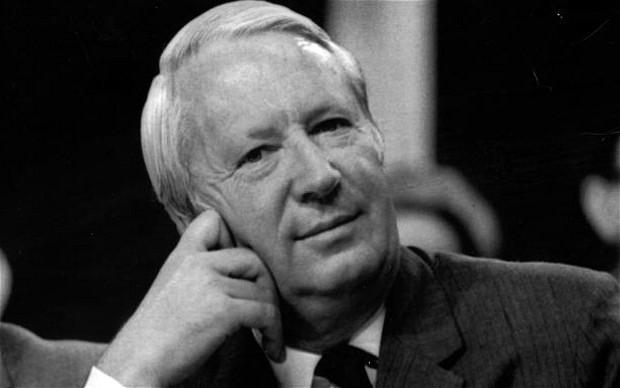This two-part documentary, which ended last night with teary recollections from a handful of well-known faces, wasn’t really a “secret history”. The history of grammar schools and their wholesale demolition by a Labour government is pretty widely known. But even that was fairly lightly skipped over. No, this was really a love letter, written to a long dead mistress who had served the writer well. And it was a love letter to be read out loud, so that it would haunt the consciences of those who might finally understand what it means to betray in the name of an idea - even if that idea is a good one, such as “fairness”.
So it wasn’t an impartial programme by any means (though we did get the other side, and I’ll come on to that) but it was a fairly stirring one. Stern 1950s headmasters in gowns surveyed their assembled bright-faced charges against backdrops the likes of which most comp kids would never have seen outside Hogwarts. And then there were the tears, as former boys and girls who’d passed their 11-pluses and who’d been given a free pass to take advantage of opportunities that only privilege had previously allowed, recalled teachers dedicated beyond the call of duty and environments that nurtured ambition.
Has a sink school in Peckham ever elicited such eloquent hymns of praise?
Roy Strong, Neil Kinnock, Paul Boateng and Edwina Currie all welled up at the memory. It was only Michael Portillo, alumnus of Harrow County, who remained dry-eyed: “Despite all that the school did for us, I don’t think they ever made us as effortlessly confident, or even as effortlessly charming, as those public school boys,” he said, thinking of those boatered boys at that other Harrow. Still chippy after all these years? But no, he too was grateful for opportunities afforded and since swept away for bright children with humble means.
Has a sink school in Peckham ever elicited such eloquent hymns of praise? Or a leader of a political party who would later decry the access to power that the grammar school system had personally afforded him? I speak of Harold Wilson and successive Labour leaders, not Neil Kinnock whose political views on the matter were shied away from. I really wanted to know, and it wasn’t even touched on, whether Kinnock’s views had changed in hindsight and as a witness to the gradual ossification of social mobility, an ossification brought about by the kind of utopian thinking that imagined we would eradicate social class by eradicating the means by which working-class kids achieved academic excellence.
It’s like senior members of the Communist Party in Soviet Russia creaming off the best for themselves while the workers starve
Nowhere in this radical new thinking was it imagined that it would do the reverse. But when it did, did anyone apologise and admit they got it wrong? No, they simply made sure that their own offspring got what working-class children no longer could - by paying for it (think Diane Abbott and Polly Toynbee – former scourges of academic selection). Oh yes, it’s like senior members of the Communist Party in Soviet Russia creaming off the best for themselves while the workers starve.
And it’s curious that the most vocal champions of the comprehensive system come from privileged backgrounds with no direct experience of it. Why so? Is it because their backgrounds have afforded them access into politics and the media which would otherwise have been denied them? What we really need is a graduate of an Ofsted “improving school” in Abbott’s constituency to tell us all how utterly marvellous it all is and how she dreams of putting her own offspring through it. Not the hypocrisy we are witness to time and again from the Left.
But, of course, there was a real downside to the 1944 Education Act that had introduced the rigid tripartite system which allowed the grammars to shine. When Sue Elliot, now a writer and producer, failed her 11-plus she knew “in my heart of hearts that I had failed a very significant hurdle in life”. She was packed off to the local secondary modern (though aware of the limits it sought to impose, she did fine in the end - she hauled herself up, but many others didn’t).
There was no room for flexibility, and this was the system’s great failing. The Left’s greatest failing was to throw the baby out with the bathwater.















Add comment